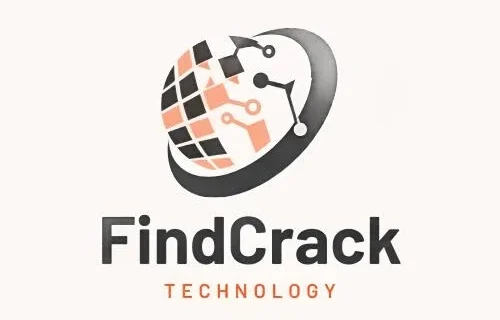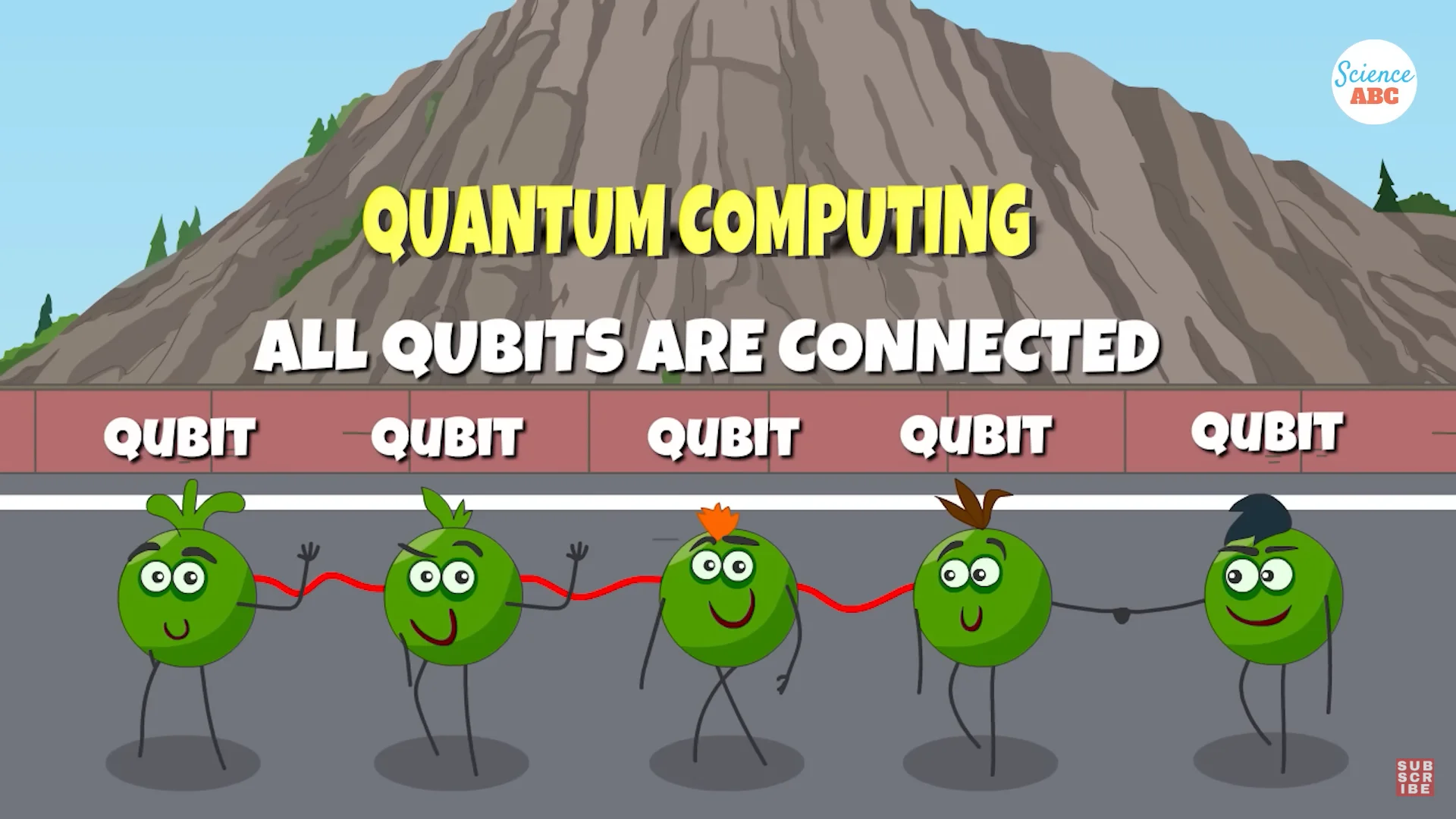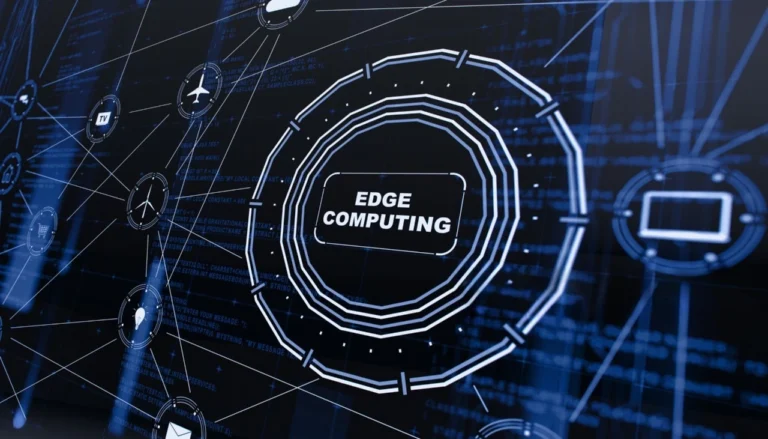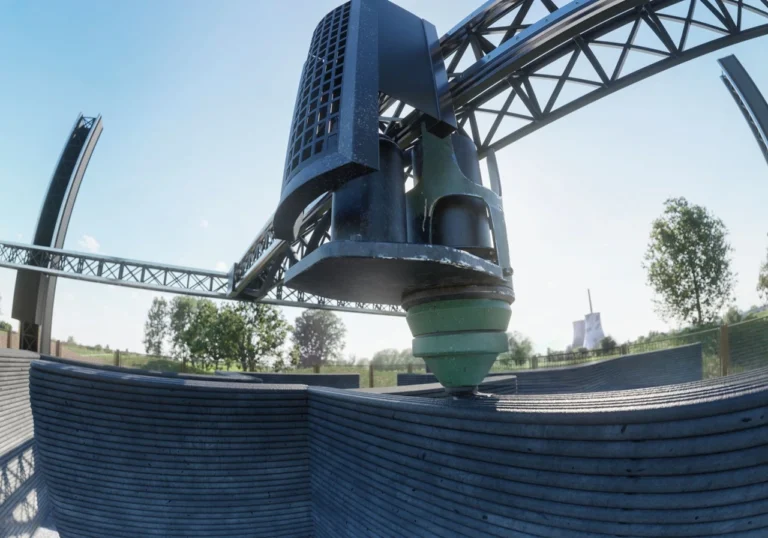Introduction to Quantum Computing
Quantum computing impacts how we solve challenges. Instead of bits (0s and 1s), quantum computers employ qubits. This type of machine is distinct from ordinary computers. Superposition enables qubits to be 0, 1, or both at the same time. This shows how fast are quantum computers at doing some tasks.
In 1998, the voyage started with a computer that had two qubits. By 2016, IBM had made a 5-qubit quantum computer available through the cloud. People believed that Google’s Sycamore processor was the most advanced quantum processor of 2019. It fixed an issue in 200 seconds that would have taken a supercomputer 10,000 years to fix. This is showcasing the potential of how fast are quantum computers.
Quantum computing is having an effect on AI right now. It can process data faster, which makes AI chatbots and picture production operate better. This tutorial speaks about how fast quantum computers are, how they are different from classical computers, what they could be used for, what their limitations are, and what might happen in the future.
Quantum Computing vs. Classical Computing: The Core Differences
Bits vs. Qubits: The Building Blocks
Classical computers use bits. A bit can be either 0 or 1. These two states are what all data processing depends on. Quantum computers use qubits, which leverage superposition to represent 0 and 1 simultaneously, enabling greater information storage and contributing to how fast are quantum computers for certain tasks
Qubits also use entanglement. Even at long distances, entangled qubits connect their states. This makes it possible to do complicated calculations. Interference, which is another quantum feature, makes qubit states stronger or weaker for algorithms to work better. Because of these qualities, quantum computers can do some jobs far faster than other computers.
How Fast are Quantum Computers Process Data
Quantum logic gates are used in quantum computers. These gates work with qubits in the same way that classical gates work with bits. For instance, the Hadamard gate creates a superposition. The CNOT gate makes qubits entangled. These mechanisms highlight how fast are quantum computers in executing specialized operations.
You can go back and forth with quantum operations. You can undo them, which is not the case with several classical procedures. A quantum computer uses gates to change the states of qubits. When you measure qubits, they turn into 0 or 1, which gives you results. Due to the principles of quantum mechanics, the results obtained from measuring qubits are inherently uncertain. To make sure they are correct, algorithms generally run more than once.
Classical computers can process data in either a sequential or parallel way. They don’t have superposition or entanglement. This makes them less useful for hard challenges like breaking down big numbers or modeling molecules.
How Fast Are Quantum Computers?
Speed Comparison: Quantum vs. Classical
Quantum computers are excellent at certain things, demonstrating how fast are quantum computers for specialized problems. In 2019, Google’s Sycamore, which has 53 qubits, finished a Random Circuit Sampling (RCS) challenge in 200 seconds. Google said that a supercomputer would take 10,000 years. IBM countered that optimized classical methods could solve it in days, yet the quantum potential was evident. This underscores how fast are quantum computers for specialized computations.
Google’s Willow processor, which had 105 qubits, did RCS work in less than five minutes in 2024. Google says that a supercomputer would take 10 septillion years. This shows how fast are quantum computers for specific situations.
The Heron processor from IBM has 156 qubits and works 3 to 5 times better than the Eagle processor, which has 127 qubits. With more than 4,400 qubits, D-Wave’s Advantage2 can solve optimization problems in minutes. It could take classical supercomputers around a million years to do the same things. These speedups only work for certain tasks.
|
Processor |
Company |
Qubits |
Claimed Speedup |
Task |
|
Sycamore |
|
53 |
200 seconds vs. 10,000 years |
Random Circuit Sampling |
|
Willow |
|
105 |
<5 minutes vs. 10 septillion years |
Random Circuit Sampling |
|
Heron r2 |
IBM |
156 |
3–5x over Eagle |
General quantum computing |
|
Advantages |
D-Wave |
4,400+ |
Minutes vs. ~1 million years |
Optimization problems |
Key Quantum Algorithms Driving Speed
The speedups are caused by quantum algorithms:
- Short’s Algorithm: It factors large numbers much faster than traditional ways. It puts current encryption methods at risk.
- Grover’s Algorithm makes unorganized searches four times faster than traditional methods. It searches N things in N steps instead of the usual N steps.
- Variational Quantum Eigensolver (VQE): Quickly finds molecular ground states. It helps the study of quantum chemistry.
- Simulations of quantum systems: naturally model quantum systems. This helps scientists study materials and find new drugs.
These algorithms leverage quantum properties to outperform classical methods, showcasing how fast are quantum computers in specialized applications.
How to Measure Quantum Performance
Quantum volume tells you how powerful a quantum computer is. It takes error rates, connection, and the number of qubits into account. It took up 128 quantum units on IBM’s Eagle. Newer computers try to do better.
The fidelity of a gate shows how exactly operations happen. Reliable results come from high accuracy. Standard measurements like FLOPS don’t work here. Quantum computers are excellent at certain jobs but not at general computing.
Real-World Applications of Quantum Computing
Quantum-Powered AI and Machine Learning
Quantum computers enhance AI by processing large datasets faster, showcasing how fast are quantum computers in improving AI chatbots and image generation. Research is being conducted on quantum-enhanced natural language processing (NLP). For example, quantum models may be more adept at comprehending intricate patterns in language.
The implementation of quantum computers may expedite the training of generative models for image production. A 2023 study discovered that a Quantum Angle Generator (QAG) can produce accurate images on chaotic quantum devices. This technique has the potential to enhance the quality of images produced by AI for medicinal or artistic purposes. The development of practical applications continues. If you want to learn more, visit this Wikipedia page.
Cryptography and Cybersecurity
Quantum computers make it tougher to keep your computer safe. Shor’s algorithm can break RSA encryption by quickly factoring large numbers. The result puts the safety of the data at risk. This capability underscores how fast are quantum computers in cryptographic tasks. Researchers are developing post-quantum cryptography to address this issue. Us By using quantum ideas, quantum key distribution (QKD) provides a secure method for transmitting communications.
Finding new medicines and studying things
Quantum computers can accurately model molecules. This makes it easier to find novel medications by showing how molecules work together. It could help get new drugs to the market faster. Quantum simulations assist in building better batteries and superconductors in the field of material science. FoFor example, quantum simulations improve the performance of lithium-ion batteries by altering their chemistry.
Logistics and Optimization
Quantum computers are excellent at optimization. D-Wave’s advantages help with logistical problems, like how to route a supply chain. It quickly discovers the optimal routes. Quantum algorithms let investors make better decisions about their portfolios and determine how dangerous they are. With quantum speed, these things are easier to do.
Current Limitations of Quantum Computing
Quantum Decoherence and Noise
Qubits are weak. Decoherence happens when environmental noise interferes with quantum states. This process causes mistakes. Error correction employs more than one physical qubit for each logical qubit. In 2024, Google’s Willow chip was able to do error correction below the threshold, which was a big step forward.
Scalability Challenges
It’s challenging to make quantum computers bigger. There are hundreds of qubits in current systems. For real-world use, you need thousands or millions. Superconducting qubits, trapped ions, and photonic qubits are examples of technologies that have their own set of problems. It’s challenging to keep everything in order in big systems.
Limited Practical Applications
Quantum computers aren’t very common yet. They deal with specific issues like RCS or optimization. Noisy intermediate-scale quantum (NISQ) devices make it hard to employ them in real life. Hybrid quantum-classical systems have potential, but they require further development.
The Future of Quantum Computing
Breakthroughs on the Horizon
IBM wants quantum computers that can handle errors by 2028. Quantum networking could produce a quantum internet that lets you send data safely. Qubit fidelity has improved from 90% to 99.9% over two decades, highlighting how fast are quantum computers advancing toward practical use
Quantum Computing and AI Synergy
Quantum computing could change AI for the better. Chatbots and picture production are better when data processing is faster. Researchers are working on techniques for quantum machine learning. They have the potential to surpass classical models, thereby revolutionizing the application of AI.
Quantum Supremacy vs. Quantum Advantage
When a quantum computer is better than a classical computer at certain tasks, it is said to be “quantum supremacy.” In 2019, Google’s Sycamore said this. Quantum advantage is all about real-world benefits. The next step is to do this for real-world challenges. Experts predict that significant improvements will occur within the next ten years.
Recent Advances in Quantum Computing (2023–2025)
- Google’s Willow Chip (2024): A 105-qubit processor cut down on errors by a huge amount. It finished an RCS work in minutes, which is much faster than Google’s supercomputers.
- IBM’s Quantum System Two (2023): It has three Heron processors, so it can grow. He The Heron processor works 3 to 5 times better than the Eagle IBM Quantum processor.
- D-Wave’s Advantage2 (2025): The system utilizes over 4,400 qubits for optimization purposes. It solves issues in minutes instead of the million years it takes standard supercomputers to do so.
- The 2023 QuEra Processor is a 256-qubit: neutral-atom machine that looks into novel ways of doing quantum computing.
- Magic State Distillation: Steps toward computing that can handle errors.
Careers in Quantum Computing
Top Quantum Computing Jobs in 2025
• Quantum Software Engineer: Uses Qiskit or Cirq to build quantum algorithms.
• Quantum Hardware Engineer: Makes processors like superconducting qubits.
• Quantum Machine Learning Scientist: Uses quantum computing to improve AI.
• Qubit Researcher: Works on making qubit technologies work better.
Qualifications and Skills Needed
Most jobs require a master’s degree or higher in physics, computer science, or engineering. It is very important to know about quantum mechanics and linear algebra. You need to be good at Python, C++, Qiskit, or Cirq. Businesses like Google, IBM, and Quantinuum are looking for skilled workers.
How to Break into the Field
Learn about how fast is quantum computing by taking online courses. Become a member of groups like the Chicago Quantum Exchange. Look for internships at IBM or new companies like Rigetti. The business is booming, and Quantum Zeitgeist predicts that the industry will be worth $65 billion by 2025.
Quantum Computing FAQs
Conclusion: Why Quantum Computing Matters for the Future
Quantum computing promises to transform industries. It enhances AI, breaks encryption, and accelerates drug discovery. Challenges like errors and scalability persist, but progress is rapid. Explore how fast are quantum computing is through courses or communities. Its synergy with AI will shape technology’s future. Further, if you want to learn more about modern technologies in detail, I have a detailed article on modern technologies.



